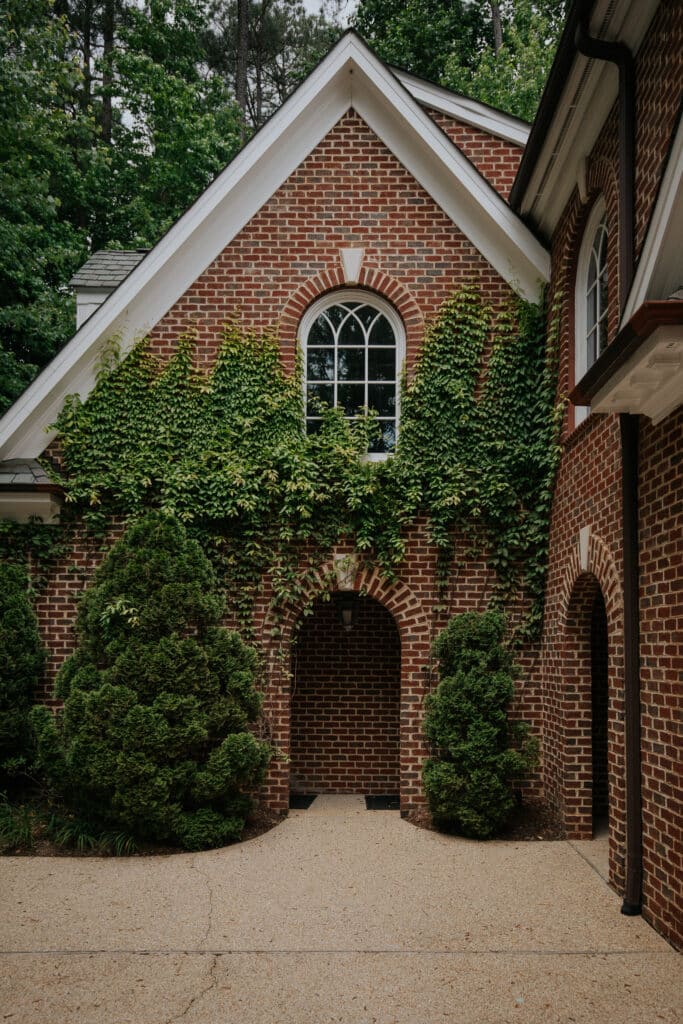
[ad_1]
Some things are just certain in life. And one of those is that I will always want more ivy. We inherited ivy with our house, and it has been pretty hardy overall. Ivy grows vigorously and has tendrils that grip onto surfaces like brick in such a beautifully dramatic way. But there are some things to know about ivy if you’re thinking of getting some or need to care for what you have.

First, if you’re buying ivy plants, be sure you get a kind suited for buildings. English ivy is really lovely because it’s an evergreen perennial, but unfortunately it can be more damaging as its tendrils anchor onto cracks and gaps in the mortar — plus it is also rather invasive so many states regulate it. We have Boston ivy, a deciduous variety that climbs via short tendrils branched with sucker-like holdfasts onto the surface of masonry or across the ground. I do love how it is a deep green for most of the year and then takes on beautiful fall color. It’s not quite as pretty during the winter, but that’s a short season here in NC.
You should avoid planting ivy against wood or shingle siding because it can take paint and material with it once removed. Another tip is to make sure it doesn’t get into the eaves because then it can get under your roof shingles. We’ve had ours trimmed every year, back to 3/4 of the way up the house (it’s best to do this in the winter once the plant has gone dormant). You know when a guy has a beard and then shaves their face? This feels the same — it takes some getting used to. But then it grows back and it’s like, this is normal again. Other than the annual trimming, it’s relatively maintenance-free, as it’s fairly drought-tolerant once established.

Shop The Outdoor Kitchen

Unfortunately, our climbing vines have really been through the ringer in the last two years during our backyard renovation and exterior window trim painting. We had star jasmine climbing up our chimney, and when they did our backyard renovation they removed it all, and I was so sad. It was just so lovely and fragrant! We tried planting Virginia creeper, which turns a brilliant color in the fall, but unfortunately it never took.
But the Boston ivy was still going strong until…it wasn’t. I found most of it on the ground in a big clump! I thought it just fell off the house during a rainstorm. But I think during the renovation, it was inadvertently detached a little bit. Can I put it back up and get it to reattach? I want it to come back! I’ve read that you can prop it up with some stiff support or cut it back to where it is still attached to the wall and let it re-grow naturally. Even if we have to replace some of it, it does grow relatively quickly (I’ve seen reports of between 3-10 feet per year) so there’s that at least.

Light Fixtures (similar) | Cold Plunge | Bar Stools | Stone Vase | Faux Fern
I do have more ideas for climbing vines though! If Chris doesn’t put in something more permanent as a cover, I’d like to have something growing over our pergola above the outdoor kitchen. Not roses because roses + kids are just hard. Plus, I’m not really a flowery girl. (I’ll make an exception for jasmine.)
Another look I’d really like to create is a wire diamond-shaped trellis against the house where we train ivy or jasmine to go up in a checkerboard shape. It would make such a statement wall for the exterior of our home! We have some landscape pros coming over soon to give us some suggestions, so stay tuned.
[ad_2]